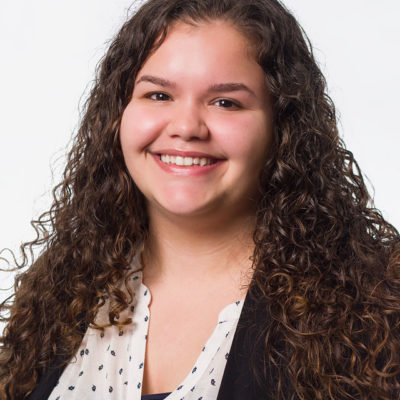
Interviewer: Please describe the work that you do with the Suicide Prevention Program.
Nadia Musleh: I am the REACH program coordinator for OSU SPP, so in a lot of ways my role and my mission are similar to PROs, however mine is a full-time position and I also handle a lot of other administrative pieces. I am heavily involved with the education pieces and facilitating both REACH trainings and REACH out sessions. I also schedule all of those sessions and work to market them so that new and returning people on campus are encouraged to participate. Based on the needs of the office I also help with the Out Of the Darkness walk, social media platforms, and website development, depending on the time of the year.
Interviewer: Wow that is amazing work! REACH Out was new this year, can you talk a little more about that?
Nadia Musleh: REACH Out is definitely new and we created it in response to not being able to do REACH trainings. Because of Covid and all of the associated restrictions, we could not offer them at all and could not even schedule them for the future trainings. We also really understood that that did not mean that our campus should stop learning about suicide prevention. The directors were trying to find a way to get information into the hands of people, while also doing it safely, and so the compromise was to do an education and advocacy session that teaches people about suicide prevention and some education pieces without the skills- based components. So that we are able to follow national standards and best practices. I had a huge role, but the content was mostly created by Laura Lewis and Dr. Darcy Granello. My job was related to the administrative pieices, and the technology side, so how to request the session and how to deliver them via zoom. I am glad that this option is now available and we don’t see it going away.
Interviewer: It is an excellent program and I’m really glad to hear that they are going to be continuing it even after in person trainings get a little bit more frequent.
Interviewer: How did you get involved with OSUSPP?
Nadia Musleh: I got involved with Suicide Prevention and the Suicide Prevention programs specifically during my end of my sophomore year of undergrad. I actually got involved with pros and I was a part of that organization for two years. During my time with pros I also interned and worked for Suicide Prevention program. I’ve always had a real passion for people and wanting people to be well as a child, adolescent, and early adult. I’ve always been really empathetic, and I’ve always cared for people deeply. Because I know what it’s like to struggle with mental health and because I’ve seen other people struggle with their own battles and mental illnesses, I have always wanted to make other’s journeys easier, to make them happier, to bring them piece, and to help them become their best selves. I did not always know what that would look like, but in the position that I am in now, I am part of saving lives by helping t educate people and by decreases stigma.
Interviewer: Thank you for sharing, I did not know you were a PRO, so that is really interesting!
Nadia Musleh: Yeah, being a pro was one of the highlights of my undergraduate career. Still to this day, years later, when people ask me what was unique about my experience, PROs is at the top of the list.
Interviewer: Where do you find hope and healing in your work?
Nadia Musleh: I find hope and healing in so many different things. I feel that strongly after I give a session or a training and someone shares something with me about their personal experiences and changes that they have seen for the better. I also find hope when I notice how our campus and the people are changing the way they talk about mental health and suicide, or when I see that so many people have attended a session or are interested.
Interviewer: What does a campus culture of care mean to you?
Nadia Musleh: There are a couple things. It starts with the support for each other, the idea that I care for you even if I do not know you personally. It also has a lot to do with reducing stigma, you could care for people and still perpetuate stigma, because it is so ingrained into our day to day lives, so education is really important. We are consciously working to debunk myths and have open and honest conversations. Finally, I think there is room in the campus culture of care to take care of yourself. We should show ourselves the grace and care that we show for others.
Interviewer: Thank you, I agree that personally wellness can often be overlooked, especially if you dedicate your life to helping other people, but it really matters.
Interviewer: What is a campus resource that you would recommend to others?
Nadia Musleh: Wellness coaching. With the wellness coaching they focus on dimensions of wellness, such as physical, emotional, mental, and financial. You can meet with a peer to set goals and they help hold you accountable. You can make appointments virtually. It is not counselling; however, it is a great way to make progress on goals. I also think the office of diversity and inclusion is a great resource and I know that they have different opportunities and connections on campus. Given that I am a first-generation college student, and I sometimes did not feel at home at OSU, this office is really beneficial.
